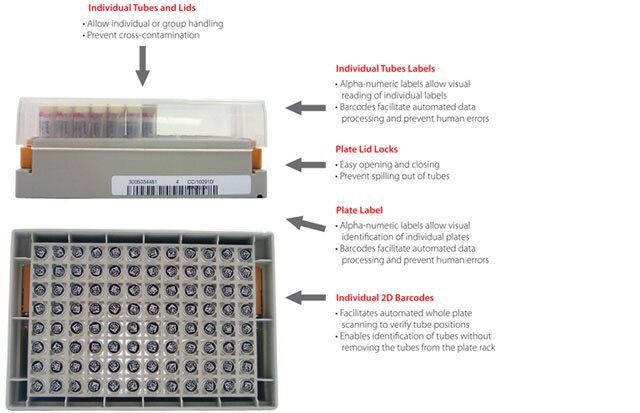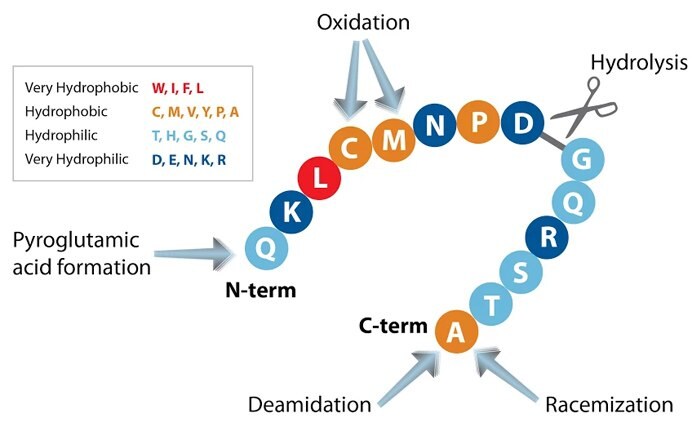PEPscreen® Peptide Library Stability
Peptide stability is impacted based on several factors including temperature, moisture content, amino acid composition and sequence. PEPscreen® peptides are manufactured and shipped to ensure optimal shelf life. The following factors can impact the stability of your PEPscreen® peptide library:
Temperature:
Store the peptide set at -20 °C (preferably -80 °C) upon receipt. When needed remove the peptides from cold storage and allow them to equilibrate to room temperature away from moisture.
Convenient Packaging:
PEPscreen® peptide libraries are packaged to allow 8 ×12 robotic handling and for individual tube retrieval to avoid the need to thaw the entire library set for few sample retrieval.

Figure 1.PEPscreen® peptide libraries packaging labeling system
Moisture content:
PEPscreen® peptides are shipped as dry lyophilized product to minimize residual moisture which decreases peptide stability. The dried product also allows dissolution of the peptides in a buffer of choice based on the assay.
Amino acid composition and peptide sequences:
Side reactions such as hydrolysis, deamidation, oxidation, pyroglutamic acid formation and racemization can occur in certain peptide sequence. The majority of these reactions occur rapidly while the peptide is in solution and are accelerated by high pH buffers.
Recommendations:
- Dissolve the peptides with buffer at pH below 8
- Reduce the number of freeze-thaw cycles of already solubilized peptides
- Consider requesting aliquoting and normalization of the peptide set to prolong the shelf life of your peptide library

Figure 2. Lot Variability and Impurities in PEPscreen® peptide libraries
Peptide Library Lot Variability and Impurities
Peptide library lot variability is determined by the impurities present. PEPscreen® peptides are supplied as crude product for high throughput screening and there are two general types of impurities that can affect biological assays:
Peptide Related Impurities:
- Depending on the difficulty in synthesis, truncated peptides and/or deletion sequences with more than six residues may be present in the final peptides. In some cases, these impurities may impact peptide activity in the assay leading to false positive results.
- These impurities may be identified by MALDI-TOF Mass Spec and HPLC analysis.
Non-peptide Impurities:
- Counter ions of trifluoroacetic acid and acetic acid may be present in PEPscreen® peptides. A simple desalt process may remove most these impurities.
- Residue moisture: some peptide sequences can retain a large amount of moisture which may affect the overall peptide weight.
To continue reading please sign in or create an account.
Don't Have An Account?